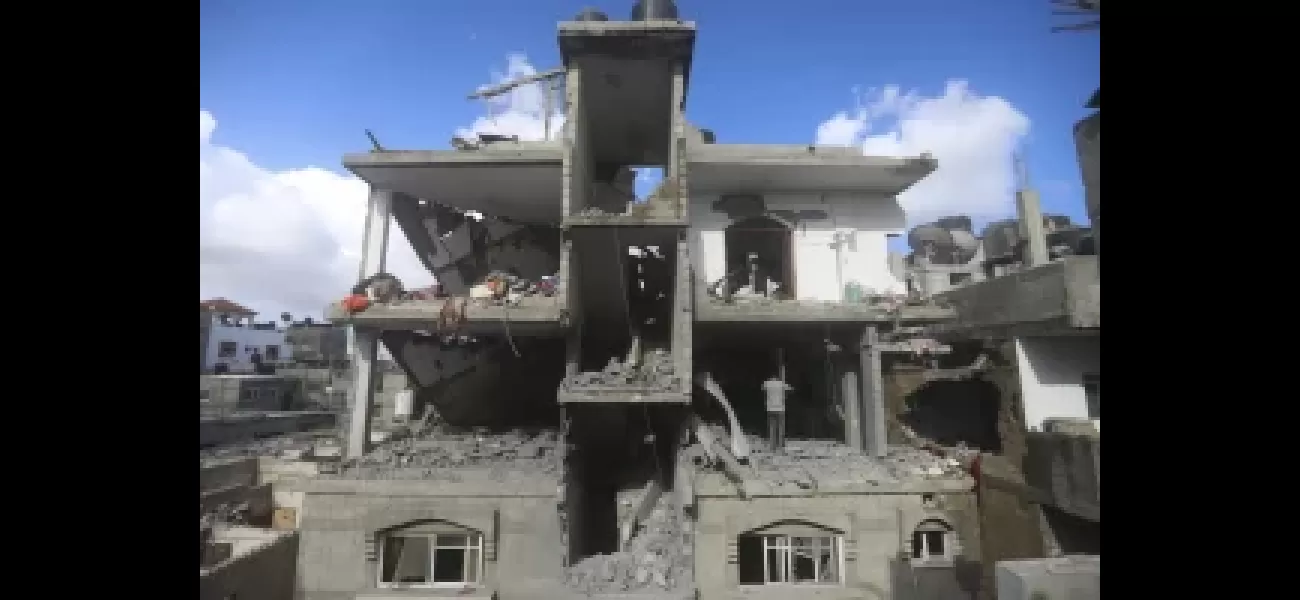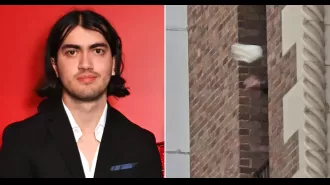Israeli troops occupy Gaza's Rafah crossing, endangering humanitarian aid and jeopardizing negotiations for a cease-fire.
Israeli tanks took over Gaza's Rafah border crossing, defying warnings and potentially disrupting aid to Palestinians, as cease-fire talks with Hamas teetered.
May 7th 2024.

The situation in Cairo was tense as Israeli tanks took control of Gaza's vital Rafah border crossing on Tuesday. Despite urgent warnings from close allies, Israel moved into the southern city, further heightening tensions between the two sides. The UN expressed concerns about the potential collapse of aid flow to Palestinians due to the closure of Rafah and another main crossing, Kerem Shalom. Officials reported that the northern part of Gaza was already experiencing severe famine.
The incursion into Rafah came after a series of back-and-forth actions between Israel and Hamas in their ongoing war. On Monday, Hamas announced that it had accepted an Egyptian-Qatari mediated cease-fire proposal, but Israel rejected it, stating that it did not meet their core demands. The diplomatic efforts and military maneuvers left a glimmer of hope for a potential deal, but the situation remained tense as the war entered its seventh month, with a devastating toll on the Gaza Strip.
The Israeli operation in Rafah seemed to be limited and did not escalate into a full-fledged offensive as originally planned. However, it was uncertain if it would be expanded in the future. This looming threat has caused a rift between Israel and its main ally, the United States, who expressed concerns for the safety of the 1.3 million Palestinians living in the city. US President Joe Biden warned Israeli Prime Minister Benjamin Netanyahu against launching an invasion and ordered 100,000 Palestinians to evacuate from parts of Rafah.
The atmosphere in Rafah quickly shifted from joy to fear as families began to flee the city. Parents were seen disassembling their tents in the refugee camps and packing their belongings to leave, uncertain of their next destination. The fear of Israeli airstrikes and attacks was palpable as the sound of explosions echoed throughout the city. Najwa al-Saksuk, a resident of Rafah, expressed her doubts about Netanyahu's willingness to agree to a deal, stating that he only cared about coming out on top and not about the innocent children caught in the crossfire.
As tensions continued to rise, the Israeli military took control of the Rafah crossing, claiming that it was being used for terrorist purposes. They also launched airstrikes on suspected Hamas positions in the area. The crossing with Egypt and the one with Israel are crucial for the delivery of food, medicine, and other supplies to the 2.3 million people living in Gaza. With the crossings closed for the past two days, the UN expressed concerns about the aid operation being disrupted. They were denied access to the crossing by Israeli authorities, which could potentially have devastating consequences for the already vulnerable population.
The airstrikes and bombardment in Rafah overnight resulted in the deaths of at least 23 Palestinians, including women and children. Mohamed Abu Amra lost his wife, two brothers, sister, and niece in a strike that destroyed their home while they were sleeping. He expressed his grief and frustration, stating that they did nothing wrong and did not support Hamas. The Egyptian Foreign Ministry condemned the seizure of the crossing, calling it a dangerous escalation. They also warned that any attack that forces Palestinians to flee into Egypt would threaten the peace treaty between the two countries.
Netanyahu's decision to push ahead with the Rafah operation was met with criticism, with some accusing him of being more concerned about his government's survival than finding a resolution to the conflict. As Israel announced its plans, they also stated that the cease-fire proposal accepted by Hamas did not meet their core demands. However, they agreed to send a delegation to Egypt to continue negotiations. An Egyptian official stated that Hamas and Qatar had arrived in Cairo for talks.
According to the proposed cease-fire, Hamas would release 33 hostages in exchange for the release of hundreds of Palestinian prisoners and the withdrawal of Israeli forces from parts of Gaza. The remaining hostages would be released in the following stages, with Israel gradually withdrawing from the rest of Gaza. However, Hamas has demanded an end to the war and a complete Israeli withdrawal in return for the release of all hostages. The two sides remain at a stalemate, with neither willing to back down from their demands. The situation remains tense, and the fate of the people living in Gaza hangs in the balance.
The incursion into Rafah came after a series of back-and-forth actions between Israel and Hamas in their ongoing war. On Monday, Hamas announced that it had accepted an Egyptian-Qatari mediated cease-fire proposal, but Israel rejected it, stating that it did not meet their core demands. The diplomatic efforts and military maneuvers left a glimmer of hope for a potential deal, but the situation remained tense as the war entered its seventh month, with a devastating toll on the Gaza Strip.
The Israeli operation in Rafah seemed to be limited and did not escalate into a full-fledged offensive as originally planned. However, it was uncertain if it would be expanded in the future. This looming threat has caused a rift between Israel and its main ally, the United States, who expressed concerns for the safety of the 1.3 million Palestinians living in the city. US President Joe Biden warned Israeli Prime Minister Benjamin Netanyahu against launching an invasion and ordered 100,000 Palestinians to evacuate from parts of Rafah.
The atmosphere in Rafah quickly shifted from joy to fear as families began to flee the city. Parents were seen disassembling their tents in the refugee camps and packing their belongings to leave, uncertain of their next destination. The fear of Israeli airstrikes and attacks was palpable as the sound of explosions echoed throughout the city. Najwa al-Saksuk, a resident of Rafah, expressed her doubts about Netanyahu's willingness to agree to a deal, stating that he only cared about coming out on top and not about the innocent children caught in the crossfire.
As tensions continued to rise, the Israeli military took control of the Rafah crossing, claiming that it was being used for terrorist purposes. They also launched airstrikes on suspected Hamas positions in the area. The crossing with Egypt and the one with Israel are crucial for the delivery of food, medicine, and other supplies to the 2.3 million people living in Gaza. With the crossings closed for the past two days, the UN expressed concerns about the aid operation being disrupted. They were denied access to the crossing by Israeli authorities, which could potentially have devastating consequences for the already vulnerable population.
The airstrikes and bombardment in Rafah overnight resulted in the deaths of at least 23 Palestinians, including women and children. Mohamed Abu Amra lost his wife, two brothers, sister, and niece in a strike that destroyed their home while they were sleeping. He expressed his grief and frustration, stating that they did nothing wrong and did not support Hamas. The Egyptian Foreign Ministry condemned the seizure of the crossing, calling it a dangerous escalation. They also warned that any attack that forces Palestinians to flee into Egypt would threaten the peace treaty between the two countries.
Netanyahu's decision to push ahead with the Rafah operation was met with criticism, with some accusing him of being more concerned about his government's survival than finding a resolution to the conflict. As Israel announced its plans, they also stated that the cease-fire proposal accepted by Hamas did not meet their core demands. However, they agreed to send a delegation to Egypt to continue negotiations. An Egyptian official stated that Hamas and Qatar had arrived in Cairo for talks.
According to the proposed cease-fire, Hamas would release 33 hostages in exchange for the release of hundreds of Palestinian prisoners and the withdrawal of Israeli forces from parts of Gaza. The remaining hostages would be released in the following stages, with Israel gradually withdrawing from the rest of Gaza. However, Hamas has demanded an end to the war and a complete Israeli withdrawal in return for the release of all hostages. The two sides remain at a stalemate, with neither willing to back down from their demands. The situation remains tense, and the fate of the people living in Gaza hangs in the balance.
[This article has been trending online recently and has been generated with AI. Your feed is customized.]
[Generative AI is experimental.]
0
0
Submit Comment





